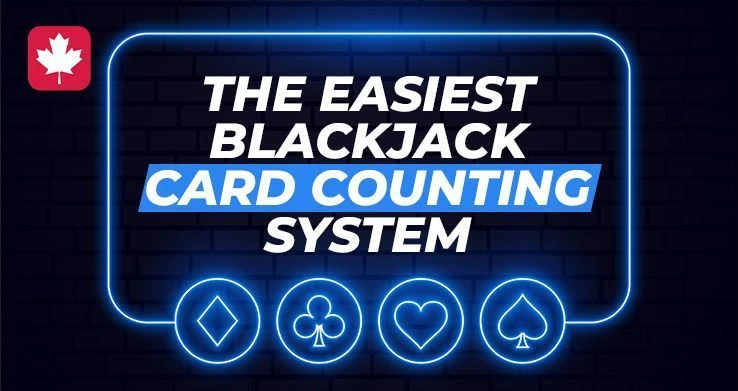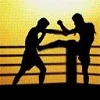Counting blackjack strategy – basics
Card counting is one of the most dishonest strategies in blackjack, yet one of the least understood by the general public. Movies and television portray the technology of blackjack card counting as a way to get rich quick. In movies like Rain Man, we're given the idea that card counting pros are blowing casinos to smithereens by winning game after game and predicting exactly which cards will hit the table next.
But, of course, not everyone can calculate the game in this way; it is believed that this is achieved by the geniuses of mathematics, who are able to calculate complex equations on the fly, while monitoring the combinations of hundreds of different cards. However, the basic idea behind card counting - good or bad - is very ambiguous. In truth, card counting cannot guarantee that a player will win a lot in a short time. The methods used in such technology only provide an opportunity to gain some access to additional information that only the casino owns.
On the other hand, the good news is that you don't have to be a genius to count. Most people are able to learn the basic principles and systems of card counting fairly quickly, and if desired, by spending a certain amount of time learning, increase their chances of a successful outcome. However, it does take some effort and the path to getting rich is definitely not going to be easy.
Linked materials
How to count cards in blackjack: how the method works

As a rule, blackjack in a casino is dealt from a shoe with a size of anywhere from six to eight decks. The cards are dealt to a predetermined number - often around 75% of the cards in the shoe - and then a shuffle is performed. This means that by keeping track of which cards are already out of the shoe during play, there is a good chance of knowing for sure which cards will be dealt.
How can this information help the player? It turns out that having certain cards in the deck will benefit the player, while certain cards will be better for the dealer. As a rule, high-value cards work in favor of the player, and low-value cards work in favor of the dealer. To be more precise, aces and tens are very good for the player, while fives and fours will be good for the dealer.
This happens mainly because aces and tens perform many functions, using which the player can take advantage. For example, if the player immediately hits blackjack (21 points), this will bring him a win that is 1.5 times his bet (3:2), while the dealer wins if he gets blackjack during the game. Also, the player can stop at 17 points or less, while the dealer does not have such a right. This means that the dealer will draw relatively often from a shoe full of tens.
Simply put, all the player's actions work for him when there are many tens and aces available to him in the deck. Small cards, on the contrary, can nullify all efforts. If a large number of small cards have already come out of the shoe, the rest of the deck will be very, very favorable for the player.
Card counters have several ways of knowing how good the rest of the deck will be for them. As mentioned earlier, these masters count the cards that are in the shoe, and in rare cases they may even deviate from their basic counting strategy. Anyway, the most popular way that all specialists use is to simply raise when the player has an advantage, and bet less (or avoid playing altogether) when the chance of winning is leaning towards the dealer.
Dangers and problems with card counting

The good news is, contrary to popular belief, card counting is not illegal. As long as you are not cheating or trying to win with any device, you can safely play every hand, including by mentally tracking the cards played and adjusting the game accordingly.
However, this does not mean at all those casinos are not capable of fighting against card counters. While such a specialist is trying to perform calculations, casinos may also try to make the calculation difficult and even impossible. For example, casino workers who become suspicious may start shuffling the deck much more often to reduce the risk of guessing and make card counting much less efficient.
If you have earned a reputation as a card counter, employees may even ban you from playing blackjack completely, as the casino reserves the right to refuse at any time. This means that one of the main problems of the card counter is striking a delicate balance between the information they have and hiding it from everyone else.
If there was no danger of being caught, then the player could simply bet the minimum bet as long as the game was in his favour, and then make the maximum bet of the table. Either way, blindly following this blackjack strategy is a surefire way to get a complete ban on the game. Instead of this pain most blackjack systems are designed for small and incremental changes that keep the player from getting caught counting cards and yet do just enough to minimize the house edge.
Another mistake when counting cards is overestimating your profits. Of course, in the end, a good counter expects to stay in the black and beat the casino. However, following a certain strategy of the game, you will notice that the results will be very volatile, and the overall advantage over the casino will become apparent only after a long period of time, and at the initial stage both wins and losses will be significant.
Blackjack card counting systems

There are a number of card counting systems available which include the following:
the easiest to learn and count Ace-Five system;
-
Hi-Lo system;
-
quick count;
-
unbalanced counting system;
-
Knock-Out counting (and derivative systems);
-
Zen technique;
-
Wong Halves.
All of these systems range from extremely simple (Ace-Five and Hi-Lo) to fiendishly complex (Wong Halves), but most of them have something in common. For example, different cards are assigned certain values, which the player must keep track of during the deal. Cards that are useful to the player are marked with negative values (because it would be better for them to remain in the shoe), and cards that are not suitable are assigned positive numbers.
Many systems involve dividing this number by the approximate number of decks remaining to accurately calculate the player's favorable cards remaining in the shoe. In most systems, the player will use this calculation to determine how much to bet on a given hand, as well as to understand whether or not to play it safe if the dealer hits an ace. Sometimes the count can also give the player information about when to abandon the basic strategy and start playing the hand differently, based on the fact that the remaining set in the deck has changed the odds in favor of an alternative play.
Some complex scoring systems also require players to count aces separately, due to the fact that the influence of these cards on the game is different from the influence of other cards and can greatly help in winning. All this testifies to one important point: when choosing one or another card counting system, you can always find a compromise. With more complex systems, the potential benefits become greater, but so does the risk.
By following additional information, players are more likely to make mistakes, and, as you know, a few mistakes will be enough to lose all winnings. When faced with a choice between using a simpler but already proven system, or a more complex and untried one, it is almost always better to settle for the simpler calculation, even if the second option promises more profit.
Ace-Five scoring system

Probably the simplest card counting system is the Ace-Five system. This name is given to a variety of systems, all of which have one thing in common: you need to watch only aces and fives, ignoring all other cards in the deck. This is done due to the fact that the ace is the most successful card in the shoe for the player, and the five is the worst card. The basis of the idea is simple: you need to start the countdown from zero, then when you see any five, one is added to your number, and when you see an ace, it is subtracted. The higher the number, the better for the player.
The principle of the difference between the counting systems is how the information received is used to change the rates during the game. Some technologies suggest doubling the bet every time the count goes beyond certain limits, while others recommend betting a certain amount based on a specific account.
The Ace-Five scoring system generally does not require changes to the course of the game; one should only use the basic strategy and rely on big bets when the hand is favorable for the player. The advantage gained by such systems to the player is small, but it usually helps to beat the casino, which, combined with the real money reward and pleasure received in the process, makes blackjack a profitable and very exciting game.
Tips for Learning Blackjack Card Counting

Before starting to learn the card counting system, it is important to first master the basic strategy of the game, since elementary mistakes will nullify any advantage that is planned to be achieved through counting. In order to be successful, it is essential to master and perfect the fundamentals before using any of the above technologies.
It is also worth noting that there are a large number of varieties of blackjack, in which it will be simply impossible to effectively count the cards. For example, many casinos today operate shuffling machines that operate on a continuous basis, which completely eliminates the possibility of miscalculation. Most online casinos operate on the same principle.
Some online tables use a shoe that includes an infinite number of decks, which means that the chance of getting any card is always the same, regardless of which cards have already come out. Other online casinos operate with a standard shoe, but the cards are shuffled after each deal. This is equivalent to the effect of continuous shuffling, and card counting in this case also becomes impossible.



WaifuKnifu Damn, if they really pay 10% without hidden fees, this is a cool topic for developers!



FroggiAshhh If Saka goes off today, no amount of ball-passing will save PSG. It's all or nothing!










































